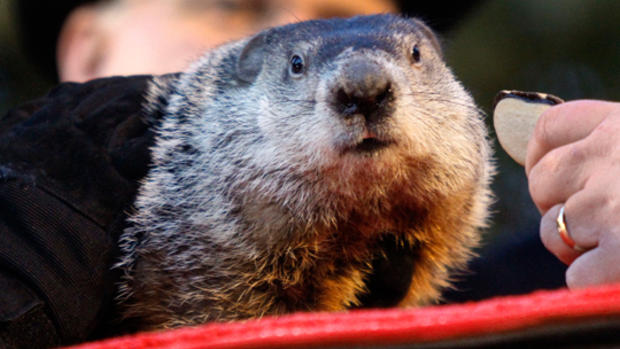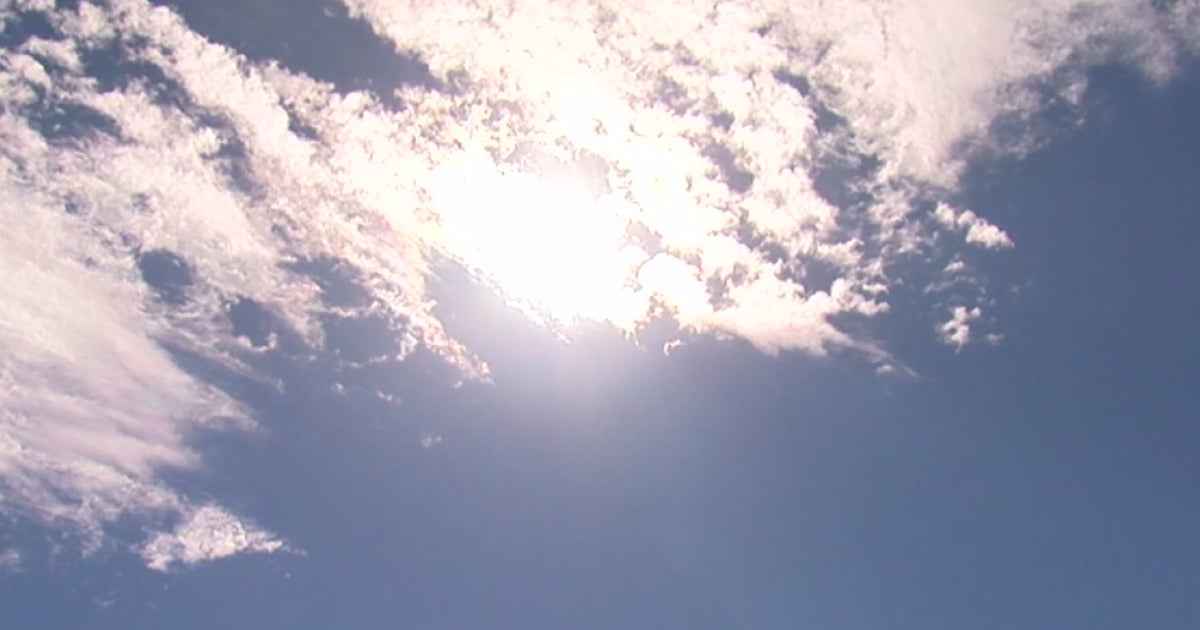Groundhog Day 2018: Punxsutawney Phil predicts 6 more weeks of winter
PUNXSUTAWNEY, Pa. -- Pennsylvania's most famous groundhog has delivered his annual weather prediction. Punxsutawney Phil's handlers announced Friday that the rodent saw his shadow, predicting six more weeks of winter.
At 7:18 a.m., just after sunrise, the rodent emerged from his lair to the cheers of thousands in the crowd. Those cheers turned to groans after the animal's weather forecast, which comes amid a winter that has brought record-breaking freezing temperatures across the U.S. -- not to mention a powerful winter storm known as a "bomb cyclone."
Legend has it if a furry rodent casts a shadow on Groundhog Day, Feb. 2, expect six more weeks of winter-like weather. If not, expect spring-like temperatures. Last year, the furry rodent "predicted" six more weeks of winter.
In reality, Phil's prediction is decided ahead of time by the group on Gobbler's Knob, a tiny hill just outside of Punxsutawney. That's about 65 miles northeast of Pittsburgh.
Records dating to 1887 show Phil predicting more winter 102 times while forecasting an early spring just 18 times. No records exist for the remaining years.
The tradition of employing animals to predict the weather at this time of year goes back much farther than that, CBS Philly reports.
February 2nd is Candlemas — a Christian holiday with pre-Christian roots. Candlemas marks Mary's ritual purification, 40 days after the birth of Jesus.
In pre-Christian times, it was the festival of Light. The Celts called it "Imbolc" — the midpoint between winter and spring.
The Germans believed if a badger came out of hibernation in foul weather, spring was on its way, and if it were sunny, he'd scurry back to his burrow, because winter wasn't done.
When German colonists arrive, there were no badgers in the East, so they drafted the groundhog to do the prognosticating.
In the 1880s a western Pennsylvania newspaper editor hatched the Groundhog day idea, sold town fathers on it, and the Punxsutawney Groundhog Club — and the holiday — were born.




